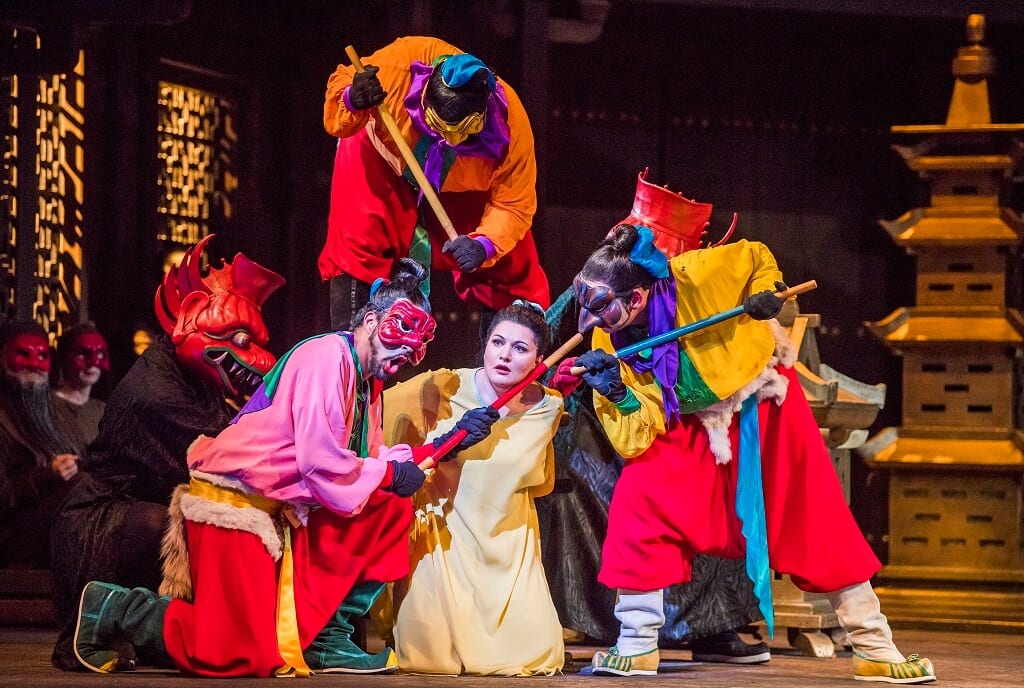Turandot was Puccini’s last opera – indeed, he died before it was finished and the version we now hear is the one completed by Franco Alfano. This latest revival of Serban’s 1984 production at Covent Garden left me feeling that it is time to pension off this version and come up with something that gets away from the crude parody of China, however colourful, that is presented here and tries to deal with the other aspects of the opera too – perhaps the meanings of the relationship between Turandot, Liu, and Calaf. The current revival provides some musical delights but has little to say about the story. The plot hints at various myths and archetypes but this production is more concerned with spectacle than meaning.
Calaf is a Tartar prince, incognito in Peking. There Princess Turandot holds sway. She has sworn to marry only the man who can answer her three questions. Many have tried, failed, and been beheaded. Calaf falls in love with her when he first lays eyes on her at the execution of the Prince of Persia and determines, despite many warnings and pleas, to undergo the trial. He answers the questions but Turandot refuses to honour her pledge and marry him. Calaf offers to let her off if she can discover his name before dawn. Turandot threatens death to anyone who knows his name and fails to reveal it. And Liu, the slave girl who looks after Calaf’s father, is tortured. Inspired by Liu’s sacrifice, Turandot relents.
Many critics take the view that the story is so bizarre that only spectacle and big choruses make it worth doing and indeed this production looks superb even after more than 30 years. It is all glowing bold colours, eye catching costumes, and chariots and masks and banners. And the Covent Garden chorus is simply superb, especially in the first act when the ‘people of Peking’ are the most influential character. Conductor Dan Ettinger makes the most of the big moments and makes the ensemble work well. But this sumptuous spectacle can’t hide the fact that what we have here is a crude and heartless parody of oriental cruelty and that some of the action – especially the portrayal of the three ministers, Ping, Pang, and Pong – borders on a faux-Chinese version of the black-and-white minstrels.
This might have been easy to ignore if the three main singers had been on top of the game – only one was. Hibla Gerzmava as Liu was wonderful, sang with style and beauty of tone and was almost human. Antonenko as Calaf and Goerke as Turandot struck poses and sang very loud. The vocal writing does mean they are both singing high in their registers for much of the time but for both of them the lack of light and shade made for an uncomfortable evening. Antonenko did sing Nessun Dorma beautifully, at least until the final bars where volume won out again – and the final duet showed that both singers are capable of great beauty of tone. Minor roles are well sung by In Sung Sim and Robin Leggate.
I have my doubts whether it is possible to stage this bizarre myth-spectacle-pantomime in a way that allows any human truths to emerge. If that is the case, then I hope that, in their next production, the Royal Opera can at least celebrate its musical pleasures and present a fresh view of the spectacle in a way that avoids some of the clichés in the version on show this season.






